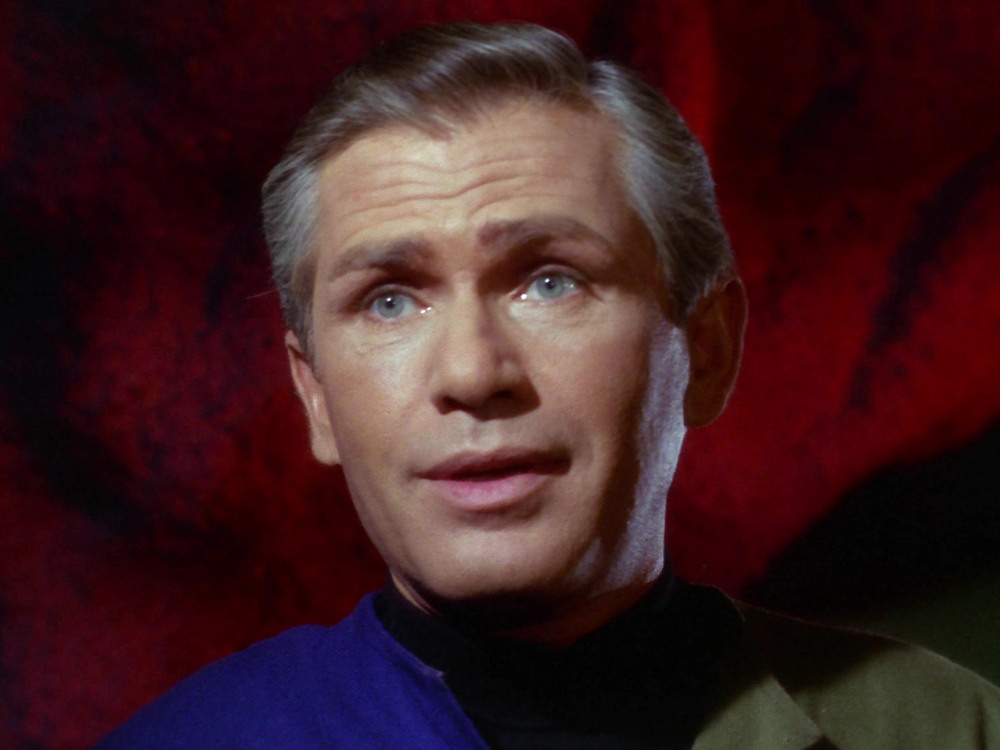Roger Korby
| Species | Human/Exo III android |
| Sex | Male |
| Died | SD 2712.4 |
| First Appearance | TOS 09 (20 Oct 1966) |
| Portrayed by | Michael Strong |
| Advertising |
Doctor Roger Korby was known as "the Pasteur of archaeological medicine." His translation of medical records from Orion ruins revolutionized the Federation's immunization techniques, a fact which was required reading at Starfleet Academy circa 2250, according to Starfleet Captain James T. Kirk. Korby eventually became involved with one of his students, Christine Chapel; they were engaged to be married when Korby vanished on an archaeological dig on Exo III in 2261. Chapel gave up a career in bioresearch to look for Korby, and two further expeditions to the planet yielded no results until the U.S.S. Enterprise NCC-1701 — with Chapel aboard as head nurse — visited Exo III five years later, on Stardate 2712.4.
When he disappeared, Korby had discovered the remains of an ancient, long-dead civilization, and a single remaining android of their creation, Ruk, tending to the machines. Korby, near death from exposure to the frigid environment of the planet's surface, used the machines to transfer his consciousness into an android body. He then created a duplicate of his dead partner, Dr. Brown, as well as a young woman, Andrea. When the Enterprise arrived five years later, Korby created an android duplicate of Captain Kirk — ostensibly to impress the captain, but also to further his goal of quietly replacing people throughout the Federation with android duplicates. Kirk violently opposed Korby's plan, resulting in the deaths of two security officers — Matthews and Rayburn — as well as Kirk's android doppelgänger, Brown, Ruk, Andrea, and Korby himself.[1]
Notes and References
- ↑ Roddenberry, Gene (Executive Producer). "Balance of Terror". Star Trek, season 1, episode 14 (Production number 09). Directed by Vincent McEveety. Written by Paul Schneider. Desilu Productions. 15 December 1966.

